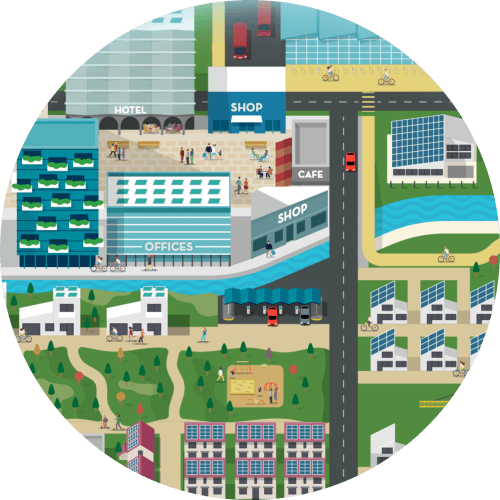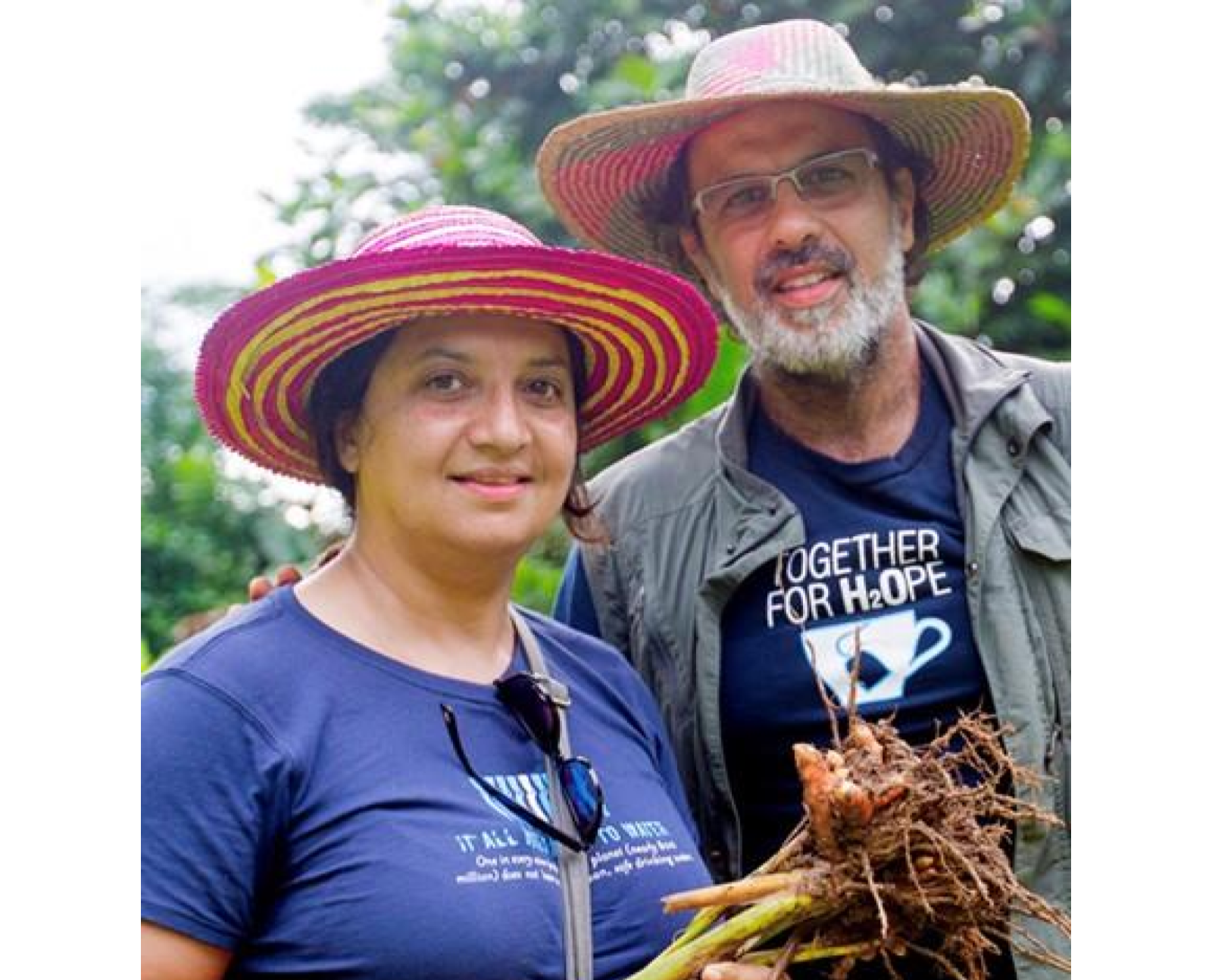Forging the Future: ACPL Exports Leads on Climate-Conscious Jewelry Manufacturing
Pieces from the Indian sterling silver jewelry manufacturer ACPL Exports can be found retailing in Walmart, JCPenney, Target and on Amazon. Alongside its quality products, the company credits climate action as one of the key reasons behind its growing international clientele and business revenue.
(MSMEs working to become more sustainable can kickstart their climate journey by making the SME Climate Commitment and join companies like ACPL Exports in reducing their emissions. Learn more here.)
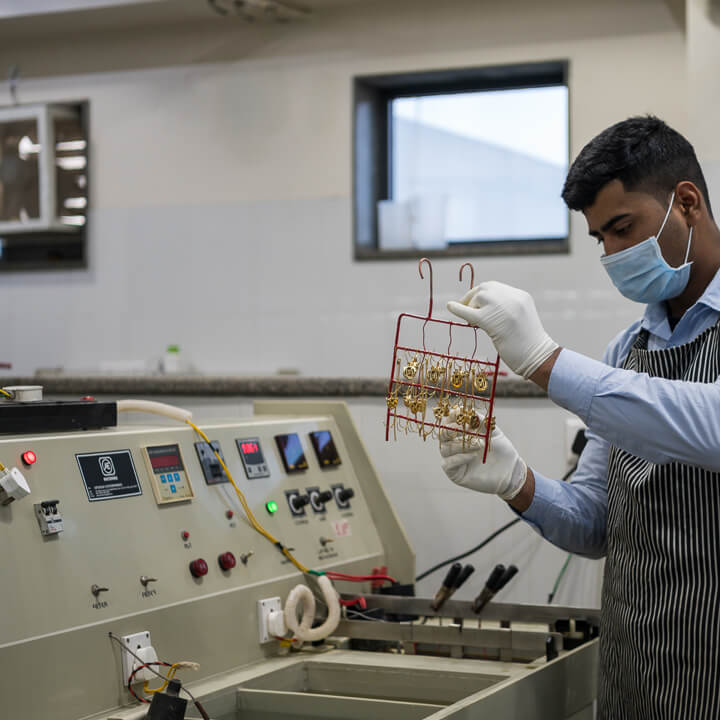
Headquartered in Agra, India, ACPL Exports was founded in 1988. Its commitment to the environment has been evident since its inception, and in recent years, the company has doubled down on its climate action initiatives.
Besides becoming an SME Climate Hub committed business since 2023, ACPL is a certified member of the Responsible Jewellery Council, London and Sedex. They also report their emissions annually on multiple platforms including Higg/Worldly, Amfori, Inspectorio and SLCP, and they are also Recycled Contents Standard certified.
Asked for their reasons behind prioritizing sustainability, Abhishek Gupta, Director of ACPL Exports is quite clear. “At this point in time, climate action is necessary for survival. How can any business expect to exist in the long run unless all of us act today?”
How is ACPL reducing emissions?
- ACPL primarily uses recycled silver instead of raw silver for the production of its pieces. Taking this step has ensured overall emissions reductions as mining raw silver is an energy-intensive process that also causes significant greenhouse gas emissions.
- In terms of manufacturing, the company has identified certain production processes which are more polluting than others so that they can optimize them. For example, melting the silver and casting it into the required shapes as well as plating the product with a final coat of silver are all known to cause the most emissions.
To ensure toxic emissions such as nitrogen and sulphur dioxide from these processes are contained well within permissible parameters, ACPL has proactively installed a ‘scrubber’ – a piece of equipment that washes away dust, other polluting particles and gases. - It has also made other production processes more efficient by installing new and imported machinery that offers the most cutting-edge technology. The company has been able to do this through taking a phased, planned approach and making use of readily available government loans with subsidized interest rates for export-based small businesses such as ACPL.
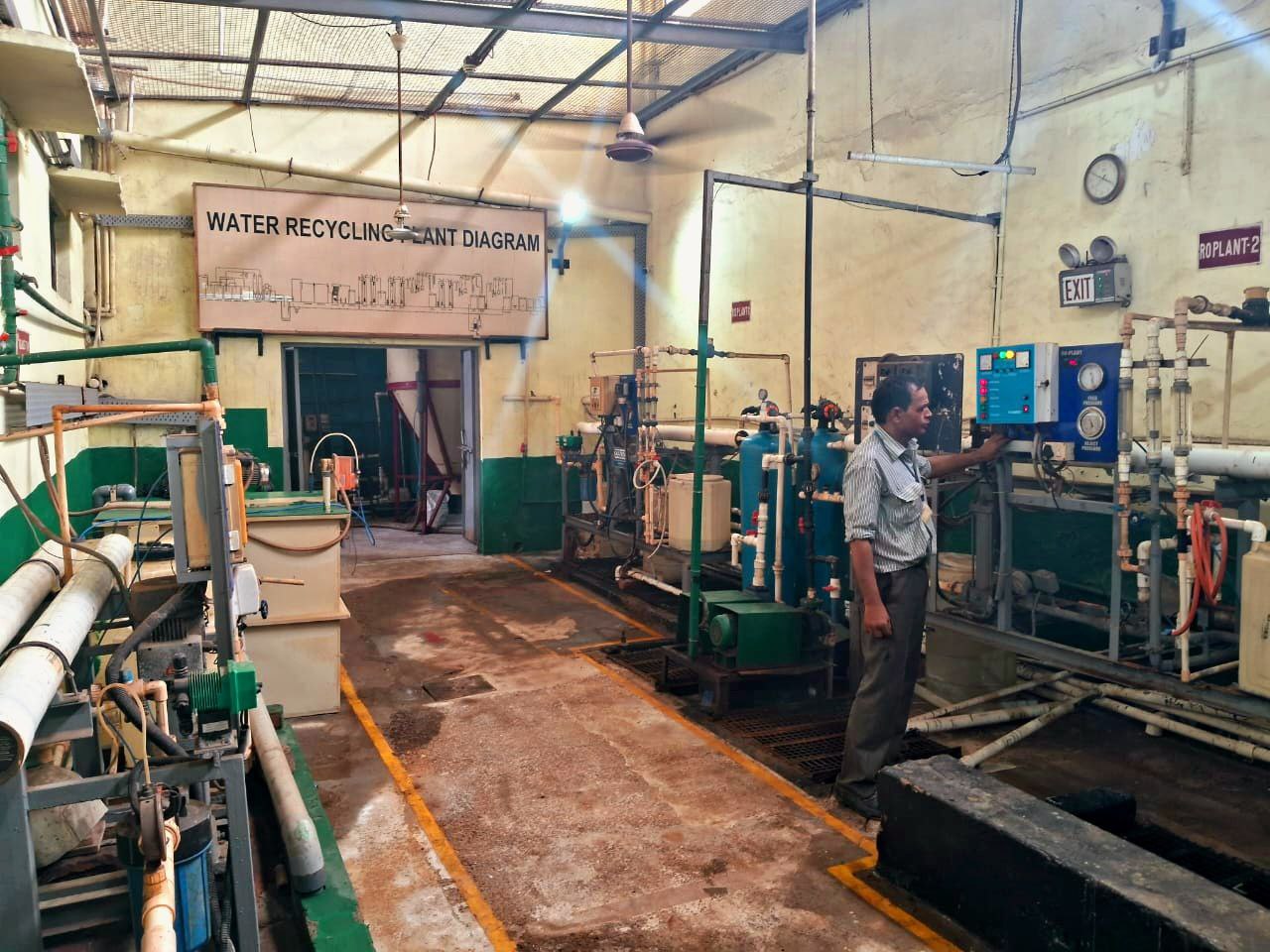
- Alongside these decarbonization efforts, ACPL Exports is now looking at its supply chain and its own utilities and day-to-day activities for further emissions reductions. Recognizing that smaller actions at scale can be just as impactful as bigger, more ambitious plans, the company is reducing business travel and daily commutes while not compromising on growth or productivity. For example, ACPL supports virtual meetings and remote work wherever it’s possible, especially when it comes to cross-border travel for buyer meetings.
- The business uses entirely recycled packaging for its products, despite the cost being more. To minimize waste, they also make sure they keep packaging to a minimum without compromising on product safety.
- Keeping in mind water pollution and the health of the overall local environment, ACPL has a ZLD (zero liquid discharge) unit in its facility. This treats polluting effluents that are released during the jewelry manufacturing process and ensures there is zero wastewater being released. Instead, the ZLD produces a sludge which is incinerated and the resulting ash produced is finally treated through a government-approved facility.
Recognizing that some of its emissions reduction technology such as the scrubber and ZLD incinerator are energy-intensive, ACPL is looking ahead to building renewable energy capacity soon through rooftop solar installation.
Big returns on climate action
ACPL Exports typically caters to overseas buyers that sell jewelry through online and big box retailers.
“All the big retailers insist on sustainability and make regular checks to see if supplier ESG initiatives are on track. But I’m proud to say that we’ve always maintained our focus on reducing emissions in step with our high standards of designing, styling and purity of products. Because of this, we’re a preferred supplier to most of our buyers, and climate action has been an important way we’ve set ourselves apart from our peers,” explains Abhishek.
Alongside big businesses prioritizing supplier decarbonisation, this small business has observed another positive trend. “Looking at the e-commerce ecosystem today, we’re noticing a lot of consumers, specifically the younger demographic, considering where their products are coming from and how they’re made. They see the ‘Climate Pledge Friendly (CPF)’ certification badge on our pieces, and they are willing to pay a premium just to ensure the products they buy are environmentally-friendly.”
Addressing roadblocks to climate action
Taking climate action has thus helped with ACPL’s expansion to other geographies and has increased its business profits, motivating the team to face sustainability challenges head on.
Initial capital cost was a barrier the company had to address to finance new machinery and technology for energy efficiency. However, the team was able to secure a government-backed loan with ease. Saving energy ultimately helped bring down running costs substantially.
Infrastructural requirements have been another hurdle in installing solar energy infrastructure at ACPL’s facilities. Despite this, the company is currently exploring central and state policies and incentives to help overcome the prohibitive setup cost. With rising energy costs affecting all businesses, especially SMEs, they see the value that renewable energy offers.
“Now, it costs more to produce the same volume which means we have to sell at a higher price. This is what makes solar energy so competitive because I know we’ll see returns over time. We’re definitely going to be implementing clean energy sooner or later, as we are also a member of the Clean Energy Buyers’ Association (CEBA).”
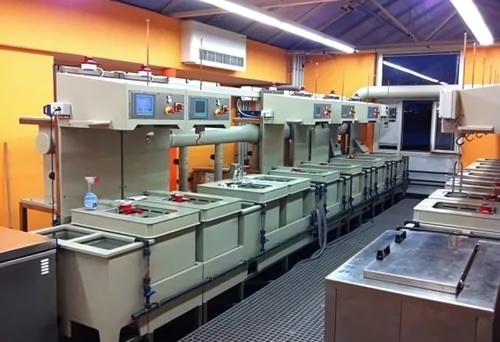
Making the SME Climate Commitment & next steps
As ACPL Exports locks in on next steps on their sustainability journey, Abhishek reflects on having joined the SME Climate Hub. “We made the SME Climate Commitment through the SME Climate Hub to signal our dedication to reducing emissions even further. It’s the first step, but arguably the most important one. It’s exciting for us to see so many other SMEs all over the world on the same journey as us. We hope to see more representation from the jewelry sector, and we’re looking forward to opportunities where we can learn from not just the Hub’s resources, but from our peers as well.”
The business, which undertakes numerous CSR initiatives at the community level, aims to replicate the same community-led approach to climate action. “There is a lot that can be done at a regional or local level if people can come together. We are making plans on how we can sensitize our peers at the industry and cluster level too. MSMEs are the bedrock of communities and can be a powerful force for good. If more of us come together, our collective climate action will have a ripple effect far greater than any of us could achieve alone. We call on all small businesses to make the SME Climate Commitment and begin taking steps towards reducing their emissions. Even the smallest actions count towards helping the country achieve net zero.”
Tell us what climate action you’ve taken
MSMEs like ACPL Exports provide invaluable insights into how small businesses can identify areas of intervention and begin taking climate action. Interested in sharing your own climate journey for potential inclusion as a business spotlight? Get in touch.
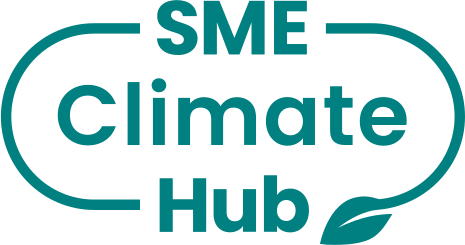
 Go back
Go back

